Women of the Embera-Wounaan Collective Land Congress (Congreso General de Tierras Colectivas Embera Wounaan, or CGTCEW) in Panama deliver food aid to quarantined communities. Credit: CGTCEW.
Para leer en español haga clic aquí
The Embera and Wounaan peoples of Panama’s easternmost forests have been mobilizing in recent weeks to address the threat of COVID-19 in their communities. The region is no stranger to epidemics and its integrity ha remained intact largely thanks to past infection diseases. But the novel coronavirus is straining the local population as the threat of deforestation in their territories creeps higher.
Since 25 March 2020 when Panama declared the State of National Emergency, its citizens have been under ‘absolute quarantine’. Individuals are only allowed to leave their homes to go to the grocery store or to the pharmacy. Regulations of who can leave and when are defined by the day and hour, depending on a person’s gender and the final digits of their identity card. For example, if the last digit of a man’s identity card is a three, he can leave for one hour at 3pm (with 30 minutes travel time permitted on either end) on Tuesday, Thursday or Saturday only. Women are restricted to Monday, Wednesday and Friday; movement is restricted entirely on Sundays.
Rainforest Foundation US (RFUS) heard from Elivardo Membache, the elected leader of the Embera-Wounaan Collective Land Congress (Congreso General de Tierras Colectivas Embera Wounaan, or CGTCEW), a RFUS partner, about the response that they have taken to bring relief to their member communities as trade and livelihoods dwindle under COVID-19. Recognized by the Panamanian government, the Congress is a representative indigenous organization built upon traditional governance structures that advocates for the well-being of its forty or so Embera and Wounaan communities in the Darien.
Rainforest Foundation US: How are you seeing COVID-19 is affecting the communities in your region?
Elivardo Membache: COVID-19 is currently affecting the economic status and food supplies of indigenous peoples in Darien province, where there are already some 181 cases across the entire population of the province (as of 8 May 2020).
Here, several indigenous persons depend on the local economy for their livelihoods and to feed their families. But now they are unemployed. They cannot move around to go shopping but regardless there is no food available in stores.
People are afraid to go to the commercial centers along the Pan-American Highway where there are the majority of confirmed cases. In Arimae, there are many young people who work in these malls who have lost their jobs.
The six communities in the Chagres province, in the Panama Canal Area, are dedicated 100% to ecotourism which is now paralyzed. They have been without work for two months and it is multiple weeks now that they cannot buy food. In my case, my family and I have our own meat to eat. Communities must survive on what there is, because aid is not reaching remote communities.
In Jaque, there are reports that there are women and youth organizing themselves to travel to Colombia in search of food and supplies; therefore, there are indigenous authorities in Colombia complaining about the arrival of people from Panama.
Rainforest Foundation US: What is the status of medical services in the Embera and Wounaan communities?
Elivardo Membache: In addition to facing the economic and food crisis, communities do not have access to basic medicines or the medical services on which they normally depend.
In my area of Santa Fe, there are women giving birth in their homes. There are dehydrated children who have diarrhea but their parents are afraid to take them to the hospital where the doctors are treating five coronavirus-positive patients. And that’s just where there are health centers and hospitals nearby. In border communities, you have to walk one to two days to reach a health center.
100% of communities have not had access to personal protective equipment such as gloves or masks, alcohol or other sterilization products. What’s more, there is no availability in stores, and the Ministry of Health is not distributing anything.
Rainforest Foundation US: How are you seeing the ongoing threats to indigenous peoples changing during this crisis?
Elivardo Membache: The situation around tropical forests is even more worrying than normal. Illegal traffickers and operators continue to exploit the forest. We have received news that there is illegal logging in Jaque, in Playa Muerto. Traffickers are taking advantage of the fact that the authorities are not standing in their regular posts, as they are focused on other things.
In Rio Congo, farmers continue their deforestation practices. The situation is worse than normal because now there is a drought in the forests. But indigenous peoples’ leaders are scared to go out and file complaints due to the possibility of contracting the virus.
Rainforest Foundation US: What is the government’s response to the challenges of indigenous communities?
Elivardo Membache: The actions of the government are not very impactful on the reality of indigenous peoples in the face of COVID-19. The government’s Solidarity Plan includes the distribution of what they call “mega bolsas” (or “huge bags”) of food, but the distribution of these is focused on the city. They will not reach rural and frontier communities.
Meanwhile, there is another very worrying situation in what is emerging for upriver communities. They do not want people to enter their territories, but there is fear that SENAFRONT (The National Border Service of Panama) is going to rotate the troops that guard the borders while the communities must stay in quarantine. Members of the communities fear the new troops could introduce the contagion to their villages. I have spoken to the commander who has said that they are not going to do a troop rotation for the moment.
Rainforest Foundation US: How has the indigenous leadership responded to the crisis?
Elivardo Membache: We are disseminating information to the communities about COVID-19, recommending that people stay in their homes, do not let outsiders enter the community, and make use of the medicines on hand. We are also sharing recipes for traditional medicines to alleviate the symptoms of the coronavirus.
Communities need salt, sugar, oil, among other foods, in addition to matches, soap, and personal protective equipment to prevent and contain the virus. That is why the Congress has organized a fundraiser and, together with Feed Panama volunteers, we are distributing bags of food, masks and gloves to the isolated communities of Arimae and Bajo Chiquito. In the meantime, we have seen a story of solidarity emerge between these communities and their relatives in the capital who are having problems in the face of quarantine and home isolation. At their request, the Congress has also coordinated the transport of plantain, cassava and yam to feed these families.
We are also disseminating information to the government regarding the reality of the communities in this crisis. We wrote a letter to the government and issued a press release, echoing the calls of the communities, and asking the Ministry of Health to advise.
We see that all of these efforts are only the beginning, however. If there is an outbreak in the communities, it would be a very grave situation. The effort now is to prevent that.








